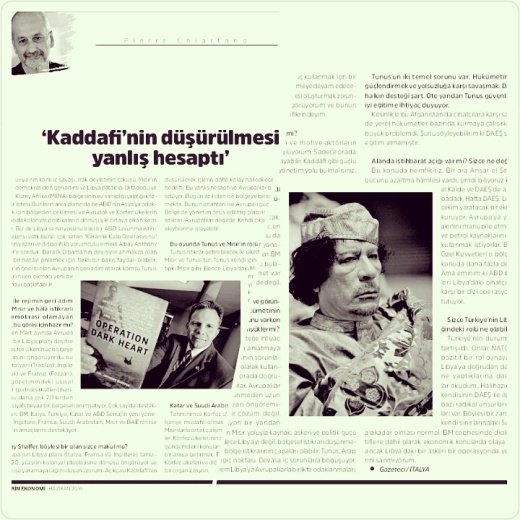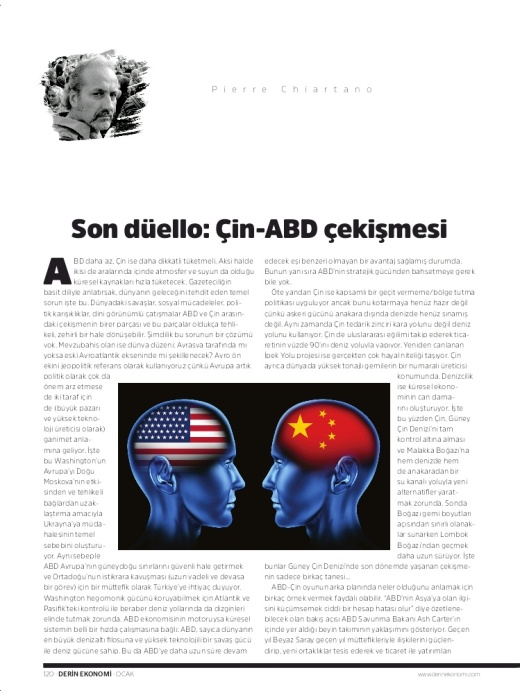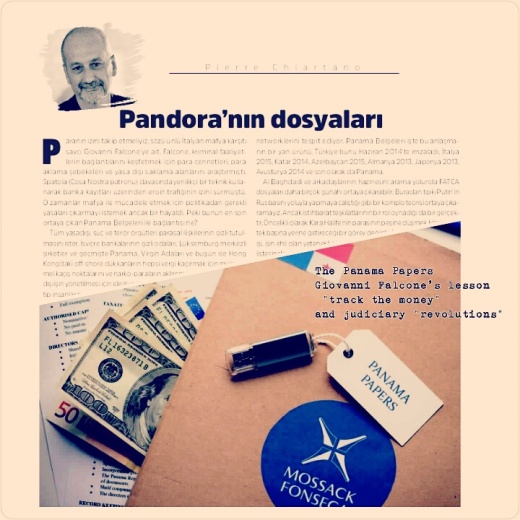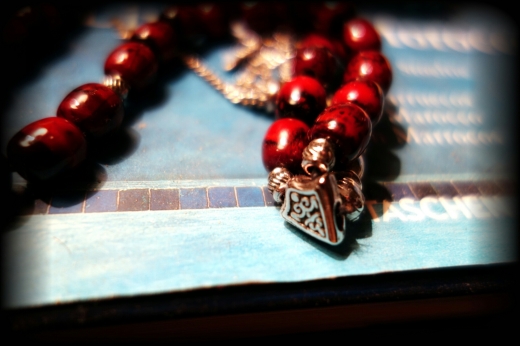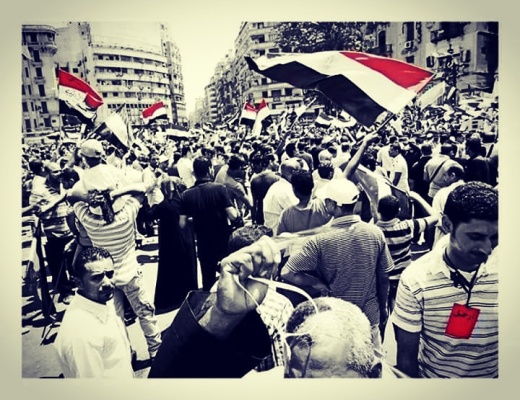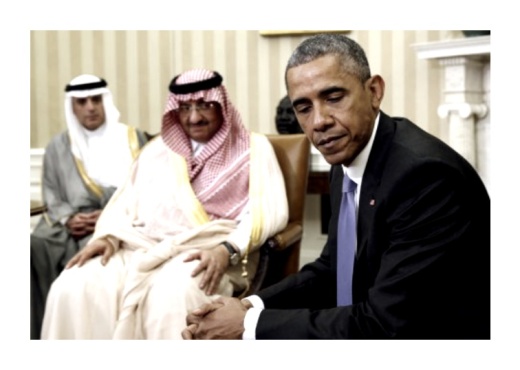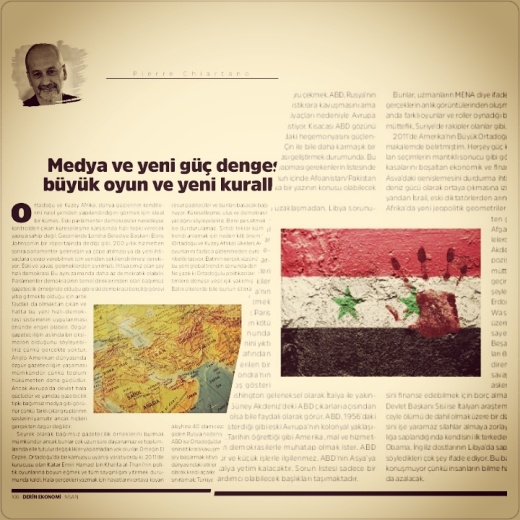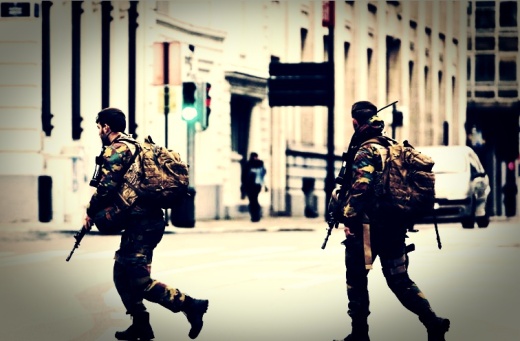What is the formula to rebuild a new Iraq again, after numerous failures? Can the winning offensive of the Iraqi security forces, the Army, the Popular Mobilization Forces (PMF) and the Federal police be enough to inflate energy to a new reconciliation initiative, as planned for next September? Can sectarianism have faded to allow a political process of national unification? Can a new government gain the trust of ordinary people by eliminating the huge burden of corruption? What role could be played by the Badr organization and the anti-sectarian attitude, but strong links with Iran, of its leader, Hadi al Amiri? Are they taking orders by Teheran or can they support a national interest? These are just a few in the long list of questions that need an answer. It has taken about fourteen months, from Spring 2015 to Summer 2016, for the Iraqi security forces to reconquer what the Black caliph, Abu Omar al-Baghdadi, had seize from the state of Iraq. Now Ramadi and Fallujah are back in the Iraqi government hands. Only 14 months to break the international lack of confidence in Iraq’s capacity to manage its own security, to control its territory, to fulfill its commitments to the Iraqi people and to internationals partners. The huge amount of money that has been poured to train the security forces who, in Summer 2014, had melted like snow under the sun in front of the so-called Islamic State’s offensive, had cast a bias in international media as well in foreign chancelleries. The stigma of ‘corrupted government’ labeled any news from Iraq, even when the Iraqi answer to this issue was being delivered. The call of Shia religious leader al Sistani to establish a Popular Mobilization Force worked.
However, another strong bias took over: Shia “militia” are simply the long hand of Iran. The call worked to save Iraq from the consequence of the Iraqi army disbanding in front if the Islamic State offensive. It worked to create a military force based on a popular call, without great need for financial resources. Flip-flop sandals and kalashnikov could be its trade mark. Brave and humble fighters, could be another label. Even so, the international media (and the general international political leadership) were extremely “cold” about the possibility to rebuilding confidence in the Iraq’s future, despite the fact that Samarra, Tikrit and Baji cities had been retaken last year. There was a litmus test of those problems: the resignation of Marine Corp General Robert Allen, the White House special envoy for the war against Daeesh and former ISAF commander, in the Summer of 2015. “Micromanagement” was a simple word that the former ISAF commander used in his resignation letter that could explain the complexity of the Iraqi scenario. The General’s mood was influenced by mistrust and a sense of uselessness and insufficient efforts. Especially on the US side, a strategic partner for Baghdad, where the Obama administration had to manage an unpleasant situation: handle an exit strategy from the Middle East and North Africa, leaving a security (…)
The voice of reason in Islam
Now after Nice foolish attack and Turkey failed golpe it became extremely hard gives voice to reason issues. But we want keep up in proposing point of views out of official “narratives”. This article was published on July the 1st in the magazine Derin Ekonomi, in Turkish language. The Albayrak publisher is known to be not far from Erdogan position. This is a fact. As well is a fact that indipendent journalism could find room even in the socalled “regime” of Erdogan. As well history will put on the shoulders of actors their responsabilities. Even for the case of Erdogan. Now that news about Turkey are driven by “guts” instead by brain it is an utmost task stay on track on “truth” with all the limitations about that it could means.
Ennahda (Renaissance in Arabic), the Tunisian party inspired by Islam religious culture and linked to Muslim Brotherhood network, has taken a strategic decision. During the last congress in May, Rashed Gannouchi was confirmed as party president and he decided to leave “political Islam” to pursue a “Muslim democracy”. “We are Muslim democrats who no longer refer to political Islam. Ennahda is a democratic, civil party whose points of reference are Muslim and modern civilizational values”, stated the old leader who in the transition period granted concessions to its secular opponents to preserve the country’s stability.
It seems to see a déjà vu as it happened in 2002, mutatis mutandis, for the Turkish Akp party borne from the dust of the Refah party which was declared outlaw, when Turkey appeared to be a new model for all Islamic MENA (Middle East and Northern Africa) countries. A chance to stabilize the Great Middle East area, through a Muslim NATO member. This wishful project ended with a political power war between Recep Tayyip Erdogan and Fetullah Gulen (as it was read abroad) and with the Ankara government strongly perceiving to be targeted by a “standard” regime change operation, taking advantage of a still powerful secularist elite and a spreading discontent due to a long time ruling of Akp. An ordinary trend in any democracy would suggest a period of opposition after a long run in government, to rebuild a political framework and the deep feelings with the people. The last elections’ outcome showed that the bond between the Turkish government and the Turkish people were still strong at least.
But the Tunisian situation is very different, and it cannot match with the Turkey of fourteen years ago. It is too early to talk of a rise of a new Muslim political project for the MENA area. But the formula “Muslim democracy” means a lot of things – first of all it could be the first step to weaken the bonds from the Gulf Wahhabism, a key passage to overcome the reform-unfriendly “literalistic” version of Islam to embrace a “modern” way to translate ruling Islam, splitting the political and the religious fields, like in Morocco. But little Tunisia could be even a litmus test for a different approach to the “Islamic issue” finally, something that could give a compass to Ankara too to go out of the “political” corner and resume to its international role as great regional actor.
Basically the Gannouchi statement waken what was one of the two great problem in post-Spring phase: the secular “radicalism”, Mohammed Arkoun style, just to take a scholar qualified example. The belief that religion couldn’t match with modernity.
The other, the greatest problem, is the ultra-radicalism, violent radicalism, fighting jihadism, or whatever name we want give to it, a mindset well described in the Holy Quran, al Taubah 9, 97: “the Bedouin are stronger in disbelief and hypocrisy and more likely they don’t know the limits of the laws Allah has revealed to His Messenger”. “Without limits” we cannot find a better definition for the heinous behaving of Islamic State and its associates.
This is the main problem in this post-revolution years and, as by product, it produces a reaction – the new rise of secularistic activism, already in a really bad shape all over the developed world. “Bedouin” Wahhabism (Gulf Style) and “secular” radicalism are faces of the same coin and produced a dangerous stand still in post-revolutionary period. Both are rusty religious/cultural tools coming from the past and both have no viable answers for the present. Despite North Africa and the Middle East have had in the recent past and present several qualified academics, thinkers, clerics and philosophers with the right answers to bring Islam into “modernity”. But since the post-World War Two period, politics and the general culture were not fertile ground for them. Socialism and communism suggested the religion file could be erased; the Nasserism did more, it used Islam’s conservatism and radicalism one against the other: divide et impera. As well all regional regimes did. Furthermore, Wahhabi foundations, rich of petro-dollars, shaped the public and academic image of Islam since the thirties of the past century, even in Western Universities, with publishing activities and funding scholarships, establishing madrasses around the Muslim world and charity assets, promoting and supporting studies for poor people. So nobody took care about a reform of Islam. And those who could lead this project just fell in the shadow corner of political and cultural society. Then came a turning point that became a game changer: the “Six Days War”. This conflict was read in different way in Western and Muslim countries.
The former simply translated the military and political outcome: Israel was a mighty country that the West could rely on in a Cold War era. For Muslims, the translation was very different. That was the defeat of a secular regime (Nasserism) by a Religious State (Israel). Since that point radical movements rose again and fundamentalism in several declinations took roots in Arab societies.
In Western media we are used to be surprised when we find some Muslim thinker, usually from the past and generally a Sufi, that wrote about Islam listing common values with Occident civilization. That because the near-total ignorance about the Islam history and the modern record of Muslim reformist scholars.
Apologizing for the limits of this shortcut list, I can quote just some of them, like Tunisian neoriformist Mohamed Talbi and his concept of “membership” in Islam and the “acceptance of the others”. He did more. Talbi suggested to deconstruct the sharia monolithic stance based on umma and igma; the Egyptian modernist Muhammed Said Achmaoui with his book Al Islam al Siyyasi (The Political Islam) a critic to the political use of religion, based on a new interpretation of Alì Abd al-Raziq. Basically he stated that Islamist movements pretend to use a “Muslim political theory” that never existed. Again a Tunisian modernist as Mohamed Charfi with his book Islam et Liberté (2001) that track a way that make possible to match Islam and modernity as well did the other two monotheistic religions. The Sudanese reformist Mahmud Muhammad Taha and his The Second Message of Islam, that was the reason of his death sentence in 1985.
Now the little and still fragile Tunisian “democracy” is taking a great burden on its shoulders. It is the country that ignited the so-called Arab Spring and the only one where things have not turned wrong yet. Tunisia could become a local actor (as well Egypt even if in really bad shape) helping Libya stabilization if it can manage such a massive task. On the other hand, the World Bank’s 5-billion dollars package and Paris 1-million euro economic support could be a useful relief to strengthen the weak Tunisian economy, still featuring a high rate of unemployment and security problems (although Washington finally decided to support the Tunisian security framework). A restart that shed light on Turkey, the old leading partner of Mslim Brotherhood political project, now struggling to rebuild a sound international and regional stance.
The Libya mess. Interview of col. Anthony Shaffer, the former Dia officer that exposed Able Danger affaire
Col Anthony Shaffer former Dia officer that exposed the Able Danger affair, writer and Cnn/Cbs/Fox expert commentator: 《The European plan for Libya (Italy, France and England) is a totally return to colonial ideology that could not work in XX century and I think will not work now. Frankly the issue regarding Gheddafi, I mean the toppling of Gheddafi, was a blind ambition by the European nations》
In this interview published June the 1st on Turkish mag DE col Shaffer opened a windows on Libyan mess. We have to understand immediately if the Egypt regime about to fail with its security apparatus almost out of control could be a responsible local actor in the Libya file. As well for the little and fragile Tunisia, despite the bravery and the will of ordinary people, can a country that barely can manage itsself be engaged in a huge task of neighbor stabilization?
About Libya seems to be no shortcut or istant coffee solutions
Syria’s bloody mess, Iraq’s State fading, Egypt’s democratic step back and Libya’s quagmire are just a short list of MENA (Middle East and North Africa) area crisis record. The background elements are the US withdrawal from this area to better focus on Asia, and the coming back of an old fashion “colonial” style policy of some European and Gulf states; both are component of chaos receipt. We have asked an assessment about the Libyan scenario to a former US Defense intelligence agency officer, bestseller writer (Operation Dark Heart) and main TV channels foreign affairs commentator, Colonel (Ret.) Anthony Shaffer. A different point of view that could help to avoid other mistakes on the Libyan “s**t show” as stated by president Barack Obama. The suggestion of Shaffer about the European stepback and the local neighbors (Tunisia and Egypt) step forward opens to the real debate. Are Egypt, with al Sisi downgrading regime and Tunisia still not stabilized democracy fit for the task?
Last March, some European press exposed a Libya plan – basically a division of the Country into three sectors: Italian (Tripoli), British (Tobrouk) and French (Fezzan). A map of national interests (oil companies) with the overview of the United States. This looks like a black&white documentary coming from Seventies – with different sponsors: the UN, Italy, Turkey, Qatar and the US backing Serraj’s new executive; the UK, France, Saudi Arabia, Egypt and the UAE supporting Haftar ambitions.
Colonel Shaffer, is such a plan credible?
The European plan for Libya (Italy, France and England) is a totally return to colonial ideology that could not work in XX century and I think will not work now. Frankly the issue regarding Gheddafi, I mean the toppling of Gheddafi, was a blind ambition by the European nations, takinfor grant that removing Gheddafi would make things easier for them. It was completely a miscalculation and Europeans are suffering for that now. The key issue is to address it rapidly to bring some level of stability to the region. European powers have to step back. I do believe that they have brought back the governance of the region, but the main military means for stability cannot be Europeans. For their own interests this choice could be counterproductive.
What could be Tunisia’s role in this game and what the role of Egypt?
Tunisia is one of the two countries that have to lead to bring stability. The two neighbors are Egypt and Tunisia. Tunisia, because is a main issue for them – they have jihadists troubling them and of course Egypt. I guess the presence of Egyptians in Libya has been underestimated. Let me be clear on this side. I met with General Mohammded Farid al Tuhami a couple of years ago (he was the Egyptian General Intelligence chief till December 2014). I’ve asked him if there was any problem with refugees coming from Libya. He laughed, “It is not a problem” he said. “The problem are the Egyptians that are running the Libyan economy if they decide to come back here”. He estimated about 3 millions of Egyptians that are really part of the infrastructure running the country.
(…)
The last duel: Usa-China confrontation
Usa has to consume less, China has to consume better. Otherwise they will consume fast all global resources, considering among them even atmosphere and water. Basically and with all the limits of a journalistic simplification, that are the main reasons threatening the future of the world. Most of instability, wars, social struggles, political turmoil, religious “supposed” clashes risk to fall in the cup of Usa-China confrontation, taking a dangerous shape and a poisoning taste. Till now this is a “problem” apparently with no solution. At stake is the new world order: it will be in the Euroasiatic side or still in the old Euroatlantic bank? We use the prefix “Euro” just as geopolitical reference, because actually Europe doesn’t count to much politically but could be a “loot” (a big market and a producer of high technology) for both sides in the confrontation. That is the main reason that brought Washington to secure Europe form Eastern Moscow influence and dangerous bonds, putting a big foot in Ukraine. That is the reason why Usa need Turkey as ally to secure Southeastern border of a weak Europe and to stabilize ME (a huge and long term task). Washington to defend its hegemonic power has to keep control on both Atlantic and Pacific rim lands and keep a strong grip on sea ways. The engine of Us economy needs a global system to work at a proper pace: fast. Indeed America has the biggest submarine fleet in number and high technology warfare and a mighty naval surface force with 11 Navy carriers strike groups that gives to Us power projection capability a stunning advantage that will last for a long time yet. Not need to mention the Us strategic power.
China, in the other side, is pursuing a comprehensive anti-access/area denial capability but it is not able, yet, to project its military power at sea and far from mainland. At the same time most of Chinese supplies and commercial trades take the sea ways instead inland routes. It follows the international trend with 90% of trade taking the route of sea. The revamped “Silk route” initiative, till now, is more a wishful thinking than a reality. China is also the first world ship builder in deadweight tonnage. And shipping is the life blood of global economy. That is the reason, among others, because China has an absolute need to control South China Sea area and find alternative way to the Malacca strait choke point, both at sea and sponsoring the build of a new waters way through an inland channel. Sonda strait has limitation for ship size, Lombok needs more days of navigation. These are some of the reasons because confrontation is taking place at sea.
Just to make some examples and to have an idea about what is moving behind the scene of Usa-China game. “Us commitment to Asia has not to be underestimated, and to do so would be a severe miscalculation” that is the mindset inside the inner circle of Ash Carter, Us Defense secretary. White house, in the last year, has been strengthening alliances, fostering key partnership, reinforcing institutions, promoting trade and investments links, and with the new Maritime security initiative signed on table of ASEAN, stated, without any doubts, its new stance in the region. Not to mention the pressing on Japan to play a new regional security role, that needs, of course, to get rid of the Japanese constitution limits. Even Singapore Air force facilities have a key role for Us Sigint/Elint activities, as well Philippines, Indonesia and Vietnam are key partners in regional security policy. The Freedom of navigation operation in South China Sea, last month, with the Uss Lassen sneaking around contested islands waters, seems to be more a China tutoring mission than a direct challenge to Beijing. At least listening DoD officials statements: “China is more likely to play a constructive role regionally and globally when Usa and our allies and partners demonstrate our resolve to uphold the principled international order”. But could be an illusive understanding, despite Washington ME disengagement and “micromanagement” in the war against IS, Us foreign policy became quite assertive if not aggressive in recent years.
In the other side, China will surely tighten rules about religious freedom till the end of the year. The spread of false informations trough social media is now under criminal law rule; the over 600 millions of “netizens” are every day more hungry of free news. Chinese communist party is weak, it missed the complex task to deal with social, economical and cultural huge changes of the last years. Heavy pollution and massive new urbanized people needs are just the tip of the iceberg of a long list of problems. Some observers think that the one party system is approaching to a dangerous crisis. History will tell us. Beijing even played a role in stopping the so called Green economy, an Obama first term strong policy. It was bogged down by the Chinese will to enter in the production business, not just selling the raw resources necessary for the industry (China is the world main producer of required rare lands). And Beijing holds almost half of Us debt in Treasury bonds (a race with Japan about who is the first Us creditor). But a huge debt is usually a “problem” for the credito
o
r.
We need a brief historical flashback to understand better how the past shaped the present confrontation framework. After the Berlin wall fall (Mauer fall) Usa took advantage of its system “victory”. In 1994 in Algeri conference of Wto, the new map of power were drown, with new rules and rulers. Globalization started to run. At that time was not so bad, specially for development countries, given the new economic chances they received. But in 1998 problems came. Europe social-economic system rigidities pushed the Old continent to a constant system downgrading. A European “one currency” framework needed homogeneity of taxation and mobility of work forces, just to quote some requirements among several. So the predictable swap among “high tech content” productions and “high intensive labor” productions did not work. With the first that should have concentrate in area like Europe (and 1st world) and the second supposed to spread all over the so called Third world to give new chances of development. It was not as planned. Financial globalization was soon out of control. The world was too much complex to fill a “one model” development and IMF and WB made some mistakes that ignited local, regional then global financial crisis. The more, Usa showed a stagnant salaries trend. So politics started to blink eye to Wall street, to build an artificial development model, sort of “incestuous” relation between politics and financial interests. Easy money policy lead Us citizens to increase their properties folder (and their debts) instead their salaries. Us Federal control rules over financial trade system were weakened. The bases of disaster were established. The economic slow down, after 9/11/2001, probably was just steeper than expected, because Us economy was already in trouble before the “Great event” of terror. Anyway crisis after crisis the Us economic wealth was steadily erased. So came probably the decision (thanks to new extraction technologies too) to start to exploit the inland strategic reserves of oil, that pushed Usa in the oil market with the will to lead the production scene in the present and the future. The forecasted end of hydrocarbons age (several times announced) could had given the political illusion of a sound long term project.
The “Pacific duel” sees no solution on the horizon, because of weakness of politics in both sides. Nobody in Washington or in Beijing has the political strength to tell to its people “downsize your life standards” or “consume/produce more correctly”.
Pandora’s files
“We have to follow the money trail”, this is a famous sentence of Giovanni Falcone, Italian anti-mafia prosecutor that infers about the connections among criminal activities and the so called “fiscal heavens”, money laundering machines and illegal gains hideouts. It was considered an investigative keypoint by Falcone. He used an innovative investigative technique in Spatola’s trial (takes the name from a Cosa Nostra boss) seizing bank records to track the heroine traficking trail. But was even a wishful thinking, for a long time, for judiciary. It was a dream to thinks to get the propers laws from the political system to achieve this task: defeat the mafia. Why? And why it is linked to recent scandal of “Panama papers”? All criminal, illegal and terroristic networks need opacity in funding operations, better they need keep them undercovered.
The secret rooms of Swiss banks, The Luxenburg based companies, in the past, Panama, Virgin islands, Hong Kong today, just to quote some of several “off shore” shops, were perfect hideouts for tax evaders, laundering operations for narco-money and all kind of illegal or gray financial wrong doing. It got even a secondary effect, sort of pervertion, it put all together these categories of persons, evaders, criminals, corrupted politicians in the same bascket. Now heroes judges like Falcone were strugling to fight mafia and pushing Italian government to deliver laws that allowed prosecutors to “track the money” abroad. So politicians had to build rules that could bring to discover illegal banking for mob finance. In this way they let the judges put their noses inside the same rooms where they could find, accidentaly, corruption evidences of political system (parties illegal funding, grease payments). Think again. No way. That was a reason because rules hardly comes and with not “perfect” shaping for the task. That was one reason because rules came often when an “external” pushing applies on a corrupted political system. It was the case of post Berlin wall european anticorruption framework. In Italy “Mani Pulite” (italian words that means clean hands) great scandal investigation, that erase almost 60 percent of old political system, started thanks to Usa pushing on Swiss bank system to authorized the record files release to italian prosecutors. Was it a political interference? No. The italian political system was deeply corrupted and unable to reform itself. That was a reason that explain why a corrupted system doesn’t fit for economy development of a country, it is a deadly poison. Sometimes works in a early stage of small economies.
But let us come back to our story. Panama papers put on the spot light, politicians, actors, sport stars and jet setters, but the greater interest was instead the “war on terror’s financial feeds” started by Washington, that even with all mistakes and hipocrisy, works seriously on the issue. Then the war on terrorism drove Us law enforcement agencies to ask for a more tight framework about international relations. In shortcut: all the states want to deal with Usa have to share financial informations about american citizens, criminals and terrorists hiding money in safe heavens, and labeled as a threat for Us security. More than one hundred countries (according to Us Tresaury department data are 112), signed or accepted the so called FATCA (Foreign Account Tax Compliance Act). Borne to pursue american tax evaders the agreement along time was shaped to expose criminals and terrorists financial networks. The file so called Panama papers is a byproduct of this covenant. Turkey signed it in June 2014, Italy (2015), Qatar (2014), Azebaijan (2015), Germany (2013), Japan (2013), Isle of Man (2015), Austria (2014) and recently Panama (agreement in substance) just to stress few of them. It was clear that searching for al Baghdadi & co “tresaure” the FATCA files could expose even other “sins”. We cannot build a conspiracy theory on it as Vladimir Putin try to do with Russian press. It is clear that intelligence agencies played a role. First of all because the matter: pursue Black Calipha money is not a task Tresaury investigators can accomplish by themselves (even they did a good job with Al Capone, long time ago). Second of all because it is a dangerous task that need to be accomplished though, skilled and “spook” guys. It happened even with the Falciani’s list, another leaks of foreigners with cyphered accounts from HKSB (Hong Kong and Shangay Bank). Langley hackers gave to Falciani a software able to extract whatever he need from his bank server. He explained it during a tv interview. Now is time to stress something that is a keypoint. Is the use of intelligence agencies, in this case Us ones, an interference in foreign countries policy? Let me tell that is the main mantra of all dictators and regimes, that considers their countries as a private property. They like soo much missrule and loot their own citizens without interferences. At the same time history teach us that “dirty games” are part of political means in international scene too, even for economical pourposes and Italy is a good example. So is very important try to understand the difference between the two cases and is a basic duty for journalists.
Now we have to come back to Falcone age. Mafia, Triads and global criminal businesses, already in 80es, were sized in large scale, so large that they can be a threat even to mid size country, like Italy, for example, especially with low quality (and no bravery) political leadership. Weak or corrupted politicians, members of government are easy to blackmail with all kind of means. For example the Russian mafia “Sun’s brigade”, its boss nicknamed Samovar (Yuri Ivanovich Essine), showed a great skill in social engineering and learned how to use local criminals for ground work in Italy, letting the organizastya’s women get married with italian small “uligany”. But before the word “global” started to become trendy, it was clear that nobody could fight war against criminality or terrorism alone. And corruption is an enviromental facilitator for both. So a key point, among others, in Falcone carreer achievement was his contribution with New York prosecutor then Fbi director, Louis J. Freeh (the italian judge worked even with prosecutor, then governor, Rudolph Giuliani). The team working, the so called “pool anti-mafia”, was another a brilliant choise to avoid to put on a single judge shoulders all the investigative burden and making him an easy target. Often war against criminals or terrorists have to be fight even against “infedel” branch of istitutions, because corrupted or just because of “turf war”. And Falcone had to face “inside job”, a costant danger for such kind of investigations. Sadly I have to say the Italian judge is better celebrated by institutions in Usa than in Italy, even if is in the heart of people, and sure he got strong american allies in the fight against mafia. There is a statue of the “procuratore anti-mafia” in the Fbi academy in Quantico.
Global threat poses by terrorism or criminality needs as well the same network of trust and confidence among single countries istitutions and agencies, leaving conspiracy theories out of the door. Reality is far less from Hollywood style movie, and burocracy, frustration, “turf wars” and political interfences are often the great enemies of justice.
Islam is a religion of peace… not in the “Gulf” wahabi version
Tariq and Tareq (Ramadan and Oubroui) are searching a new paradigm to reform Islam. But is not the lack of paradigms the issue
read article on Zamanfrance
Taking for granted that both intellectuals are valuable and the definitions of “islamology philosopher” and “theologist imam” are intriguing definitions for a sea of interesting considerations, we have to understand some basic issues.
1) Arab/Islam world does not lack of reformist thinkers (even in Tunisia) from the pastnd in modern age. Muhamed Iqbal and is love for Rumi and Goethe, the reformist Mohamad Abdhu, Mohamed Talbi and his spirituality umma that accept diversity, the modernism of M. Said Achmouiand his challange to the classical concept of sharia by a new interpretation of al Raziq, Mohamed Charfi, M. M. Taha and his “The Second Message of Islam”, the historican Djait and his critics just to quote some among several refornists/modernists muslim thinkers. The problem is not the lack of paradigms.
2)The main problem is the strong influence over all the islamic world excerted by wahabi foundations, their money (coming from oil), their international network of madrasse, institutions, publishing assets, tv channels. A influence started before the 2WW. They published in a broaden way Quran and all nterpretation issues promoting the “Gulf style” Islam. They promote the social rising of poor people paying their university studies, giving a chance and building a network of educated and grateful persons around the muslim world.
3) till the influence of this kind of institutions is not challanged all kind of debate about “reform” of muslim world risk to become an unuseful intellectual “divertisment”
4) The problem with wahabism is the missunderstand about the limits of the law of Allah. But the Sacred Quran has an answer: Surah at-Taubah, ayat 97
The bedouins (al harabu) are stronger in disbelief and hipocrisy and more likely they not to know the limits of what (laws) Allah revealed to His Messenger. And Allah is knowing and wise
Regeni e l’Italia che non c’è
È il 25 Aprile, Festa della Liberazione. Dovrebbe essere una celebrazione condivisa da tutti gli italiani, non fosse altro che per ricordare un nuovo inizio, un voltar pagina dopo un’immane tragedia invece è diventata un’occasione per fare distinguo, per riaprire vecchie ferite identitarie che l’Italia politica e intellettuale non ha mai voluto affrontare, per “pigrizia” e totale mancanza di carattere. La caduta del Muro di Berlino sarebbe stata l’occasione d’oro. Invece, silenzio assoluto. Si è preferito passare oltre, occuparsi del quotidiano sopravvivere, Mani pulite incombeva. Chissenefrega della storia. Meglio la propaganda, tanto gli italiani, che fessi non sono, fanno finta di bersi di tutto.
A 70 anni dalla fine della guerra ci troviamo ancora con sparute schiere di “giapponesi” su entrambi i fronti che si divertono ancora a guerreggiare. “Comunista!Fascista!Bugiardo!Ignorante!”. Oppure i giovsni idioti e ignoranti che contestano la Brigata ebraica che sfila a Milano. In mezzo una massa di persone che sanno poco o nulla della storia del proprio paese, oppure sono talmente angustiate dai problemi del quotidiano sopravvivere, da percepire ormai con fastidio chi gioca ancora con i fantasmi del passato.
“Sleeping” media
Anche se con un po’ di ritardo (qualche anno?) gli Usa stanno arrivando ad un pezzo di verità con la possibile autorizzazione (non è stata ancora approvata in via definitiva la legge) a citare in giudizio la casa reale saudita sul 9/11. Si sveglia anche la stampa italica (anche quella Usa dormiva), ma al solito “smarrona” … a settembre dello scorso anno scrivevo del segreto di Pulcinella nel mondo arabo: alcune fondazioni wahabite sono i finanziatori di SI e Boko Haram. E ciò che mi sarei aspettato era del giornalismo investigativo per sviscerare i rapporti fra queste fondazioni e la famiglia reale saudita, le guerre intestine, chi decide cosa, chi ha permesso, aiutato, voluto oppure subito certe decisioni… invece nulla. Ci accodiamo come sempre e siamo, come sempre fuori strada. Washington decide di mettere sulla graticola Riad, perchè proprio ora? Ipotesi. 1) fine era petrolio, i sauditi non conteranno piu nulla nel giro di pochi decenni 2) nella fretta di mollare il MO in maniera “stabile” serve coinvolgere l’Iran, i sauditi devono digerirlo, con le buone o con le cattive 3) Riad è diventato un concorrente di Washington nel mercato degli idrocarburi, nonostante compri un mare di armi americane, il potere di lobbing saudita negli Usa è in crisi 4) gli Usa si stanno togliendo i guanti con i “free riders” (sauditi, francesi, inglesi, qatarini and company) per i pasticci combinati in Libia, Siria, Iraq, Egitto….ecc. probabilmente tutte queste ragioni contribuiscono… e non sono le uniche.
Il mio articolo del Settembre 2015… avrei potuto scriverlo anche nel 2013
LEGGI CHI C’È DIETRO STATO ISLAMICOE questo lo stavo scrivendo quando ci sono stati gli attacchi di Bruxelles, pubblicato lo stesso 22 marzo 2016
LEGGI DISTRAZIONI OCCIDENTALIPierre Chiartano
Fading Democracy
“free” journalism is an oxymoron, because it does not actually exist. In the Anglo-American world there are large precincts where free journalism can work, because society is stronger than the government; in Continental Europe, where the State is stronger and still invasive, there are modern forms of “embedded” journalism that are disguised as, and have the taste of, independent media, because they reflect multiple voices of interests – but none of them are really free. Scattered examples of independent media can be found in the rest of the world. However, usually they do not last long enough to produce solid changes in their societies. For example, al Jazeera was fostering a public opinion growth in the Middle East; then, in 2011, it totally bent to its founder, Qatari emir Hamad bin Khalifa al-Thani’s political games, hence losing most of its credibility.
Published on Derin Ekonomi Turkish magazine on April 2016 issue
Pierre Chiartano
DISTRAZIONI OCCIDENTALI
(…) In Occidente si è letta tutta l’area musulmana come se fossimo negli anni Settanta; le primavere arabe, come un incidente della storia che ha prodotto ben poco in termini di governi democratici (vero) e che non ha sostanzialmente cambiato l’opinione pubblica, i comportamenti e le aspettative delle popolazioni di quell’area (falso). La voglia di Washington di andarsene ha scatenato, poi, gli appetiti del vecchio “colonialismo” in salsa europea (Parigi e Londra) e in salsa Golfo (Riad, Doha e compagnia cantando).
Un gruppo che, a geometrie variabili, ha fatto danni ovunque. Siria, Libia, in Tunisia ci hanno provato, Iraq. Mentre Washington osservava, cercando di non farsi coinvolgere e, a corrente alternata, facendo sbagli come il “micromanagement” in Iraq nella guerra contro l’Is. Ora mandano i Marines per dare una mano per la riconquista di Mosul, ma potrebbero servire anche altrove, Tunisia compresa. Si spiega così il comportamento degli americani in Libia nel 2011. Alla fine Obama l’ha detto, puntando il dito sul tradizionale alleato di sangue: Londra. In Libia avete consentito uno “shit show”. In termini diplomatici è un terremoto.
Infatti pochi fra gli esperti da salotto, mosche cocchiere dell’informazione, lo hanno commentato. E lo “shit show” andrebbe allargato all’Egitto, dove Londra, Parigi e anche Israele hanno responsabilità enormi nell’aver puntato e sostenuto un mediocre politico come Sisi che ha lasciato mano libera ai propri apparati, sostanzialmente fuori controllo. Già nel luglio 2013 a Nasr city era chiaro ciò che sarebbe successo ad Agosto nella moschea di Raabia. L’uso della violenza indiscriminata. Il caso di Giulio Regeni ha solo rimesso sotto i riflettori il problema. Anche in Egitto la risposta è stata degna di un filmato in bianco e nero. «Il paese non è pronto alla democrazia, serve un dittatore e il pugno di ferro», è stato detto. Il problema islamico? «Si può obliterare», come se fossimo tornati al nasserismo prima maniera, che sostanzialmente sfruttava le rivalità tra islam conservatore e quello radicale, affinché si annullassero a vicenda, pensando ad un superamento del dossier religione. La sinistra laica all’epoca la pensava così anche nel mondo arabo. La guerra dei Sei giorni cambiò tutto. Nel mondo islamico fu vista come la vittoria di uno stato religioso (Israele) nei confronti di uno laico, l’Egitto di Nasser, visto fino ad allora come un modello vincente. L’islam rientrò in campo. Ma non un islam che aveva subito processi culturali di modernizzazione, nessuno se ne era curato, nonostante la presenza di molti pensatori riformisti e modernisti (entrambi i termini sono inadeguati, ma rendono l’idea) … pubblicato il 22 marzo 2016 (succedeoggi.it)
Pierre Chiartano



